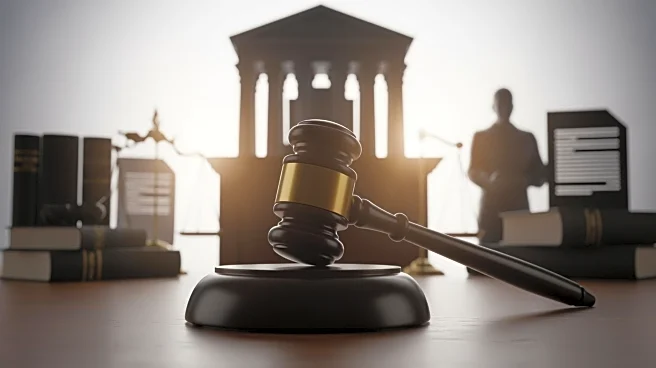What's Happening?
The Supreme Court is set to hear arguments in the case of Louisiana v. Callais, which could significantly impact the Voting Rights Act of 1965. The case questions whether Black Louisianians will continue
to have the opportunity to elect representatives of their choice, as the court's conservative majority has been gradually undermining this landmark civil rights legislation. Section 2 of the Act, which prohibits voting practices that discriminate based on race, is under threat of being declared unconstitutional, potentially dissolving one or more congressional districts.
Why It's Important?
This case is crucial as it could dismantle protections that ensure minority representation in elections. The potential invalidation of Section 2 could lead to reduced political power for Black communities in Louisiana, affecting their ability to influence policy and governance. The outcome may set a precedent for other states, impacting national voting rights and minority representation. Stakeholders, including civil rights groups and political leaders, are concerned about the implications for racial equality and democratic participation.
What's Next?
The Supreme Court's decision will be pivotal in determining the future of voting rights protections. If Section 2 is declared unconstitutional, it could lead to significant changes in electoral districting and minority representation. Political leaders and civil rights organizations may respond with advocacy and legal challenges to protect voting rights. The decision could also prompt legislative efforts to reinforce or revise voting rights protections at the federal level.
Beyond the Headlines
The case highlights ongoing debates about racial equality and the role of the judiciary in shaping civil rights. It raises ethical questions about the balance between colorblind policies and the need for targeted protections to ensure fair representation. The potential weakening of the Voting Rights Act could have long-term implications for racial justice and democratic governance in the U.S.










